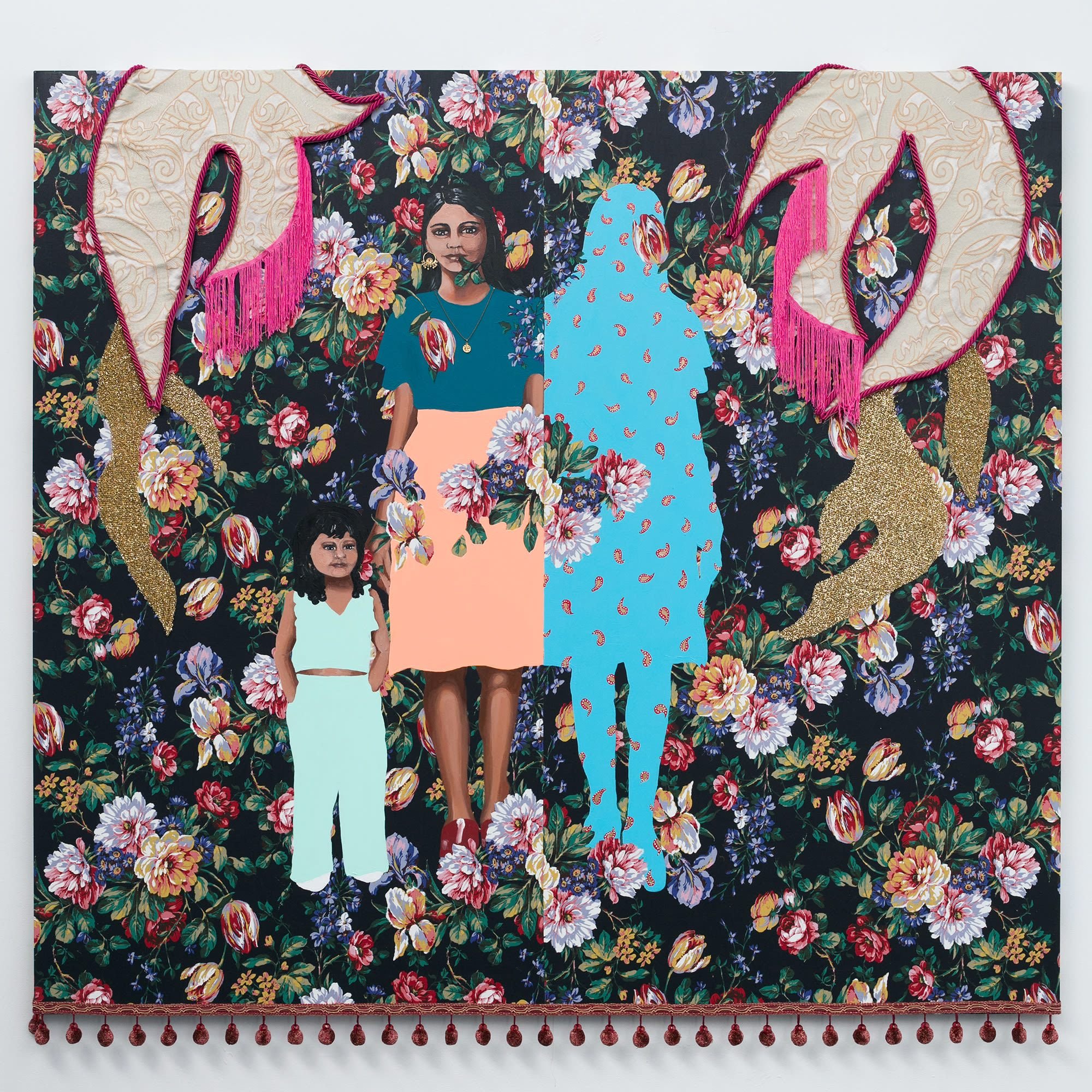
At the Artnet Gallery Network, we make it our goal to discover new artists each and every month, searching through the thousands of talented artists on our website and selecting a few we find particularly intriguing right now.
This February, we’re leaning into the spirit of love with five artists we just can’t get enough of, from a series of drawings inspired by One Thousand and One Nights to multi-media installations that explore the legacies of women’s work.
Check out our picks for this month below.
Inka ter Haar in “More Than a Feeling,” Blue Velvet Projects, Zurich
Inka ter Haar, Untitled (2022). Courtesy of Blue Velvet Projects/
Artist Inka ter Haar explores what can be the uncanny relationship between figure and ground. Against tensile monochrome backgrounds, everyday objects like chairs and streetlamps stand like actors frozen on a stage. When the human body appears in her works, however, it is only as a fragment: a pair of legs, or hands. To create the large-scale paintings on view in “More Than a Feeling” the artist worked translating her small-format drawings onto canvases. The gallery refers to her works in terms of semiotics, saying her paintings suggest larger narratives that unfold in the mind. A deliberate ambiguity defines the work, for certain. The paintings offer hints of sex, violence, some monster just around the corner. It is that uncertainty that keeps the eye coming back again and again.
Mobina Nouri in “A Thousand Tales,” Advocartsy, Los Angeles
Mobina Nouri, Seventh Night (2022). Courtesy of Advocartsy.
For her first U.S. exhibition, Iranian-born artist Mobina Nouri has created a visual universe of works inspired by the famed Middle Eastern epic, One Thousand and One Nights. Using the folkloric narratives recounted by the character of Shahrazād as her framework, Nouri has created intricately detailed drawings in ink on canvas. These narratives are familiar and surreal at once and made newly contemporary and sometimes abstracted. Nouri works across a variety of media and often returns to the subjects of Persian literature, philosophies, and mysticism in her work as a means of contemplating current political and social realities.
Christiane Lyons in “Some Women A Total Portrait With No Omissions,” Meliksetian | Briggs, Los Angeles
Christiane Lyons, Yayoi: Arrangement in Yellow Lake and Vermillon Clair (2021). Courtesy of Meliksetian | Briggs.
California artist Christiane Lyons debuts new paintings in her ongoing series “Some Women” in this exhibition. The series reimagines the history of the female figure in portraiture through Lyon’s signature hybrid paintings, which combine splices of multiple subjects into a single portrait. The images are in some sense painted collages, with the artist working from found imagery of women from random internet image searches, social media, and fashion photography.
Jeremy Stenger at Silvermine Galleries, Online
Jeremy Stenger, Untitled (2019). Courtesy of Silvermine Galleries.
Brooklyn-based artist Jeremy Stenger finds inspiration in the botanical aspects of Matisse’s cut-outs and Ellsworth Kelly’s line drawings of plants. Stenger creates all-over images of plants and flowers that leave the eye with no specific place to focus. The artist repeatedly layers paint onto the surface of the canvas and removes it within particular outlines, imbuing the works with a relief-like quality.
Suchitra Mattai in “Herself As Another,”
Hollis Taggart, New York
Suchitra Mattai, An Alien Spirit With a Breathtaking View (2022). Courtesy of Hollis Taggart.
Guyanese-born, Denver-based artist Suchitra Mattai creates vibrantly colorful, textile-based multi-disciplinary sculptures and installations. These works explore histories of emigrations and colonialism and draw from her family’s own Indo-Caribbean heritage. In her first exhibition with Hollis Taggart, Mattai is presenting 12 mixed-media paintings, fiber sculptures, and installations. Through her intricate layering of found and vintage materials, Mattai connects herself to earlier these materials’ original creators, simultaneously collapsing together multiple heritages and eras.